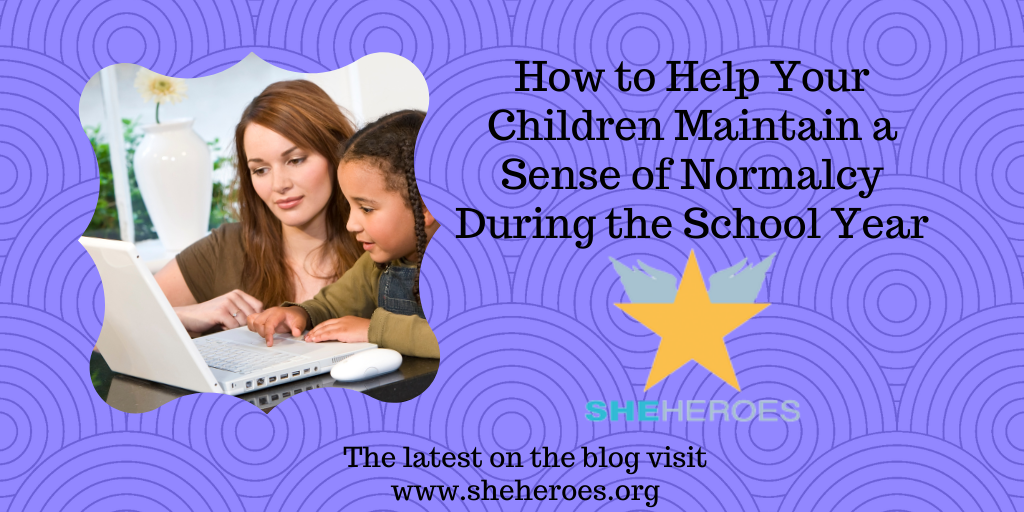
This is a guest post from writer and blogger, Jennifer Landis at Mindfulness Mama.
Many students feel a sense of anxiety when the back-to-school time approaches. However, in 2020, their tension levels might soar.
How can you help your children maintain a sense of normalcy in the age of COVID-19? After all, they may experience multiple upsets in their schedule, along with daily routine changes. The following eight tips will help your little ones stay calm amid what could be stormy seas.
1. Buy Them a Lunchbox
Schools are scrambling to enact manageable measures to reduce the risk of spreading COVID-19. Many have declared the impossibility of maintaining social distancing in the cafeteria and have imitated restaurants in removing the tables. Students will now eat in their classrooms.
Unfortunately, if your child’s last class before lunch is on the opposite end of a 1,200-student campus, they may find themselves left with five minutes left to eat after making the trek. Buy your child a lunchbox. It’s a traditional back-to-school rite-of-passage, and it ensures they always have a snack, even if the lure of chicken nugget day makes their allowance burn a hole in their pocket.
2. Stock Up on Sanitation Supplies
You probably anticipate the back-to-school wishlist, but teachers need more help than ever this year. Make sure that you stock up on cleaning supplies — you can’t rely on the classroom stock staying replenished. When shopping, check the expiration dates on the products you choose. They won’t disinfect as effectively after that.
If you are one of the fortunate few with extra in your budget, why not knock some items off your teacher’s list? While it’s beneficial to do this at the start of the semester, your donation is even more appreciated near the end when supplies run low.
3. Ask About Their Day
Maybe you fell out of the habit of asking your child how their day was after hearing “fine” one too many times. Reconnect with them around the dinner table and get back in the habit. When you do, stick to topics such as, “how did your science test go,” instead of jumping directly to, “did you wash your hands before lunch?”
Do take action if your child reports any bullying that could place their health in jeopardy. While many schools will require masks, they have to fight the same ignorance that causes heated social media flame wars about their use. Ask how your district instructs children on proper use and what measures they take to stop the harassment.
4. Communicate With Their Teacher
Your best source of inside information on what goes on in class is your child’s teacher. It’s also a way to put your mind at ease. If you have anxiety about your children returning to school, you could unwittingly pass it on to your kids, and the discomfort can cause academic and behavioral struggles.
Ask your child’s teacher what is going well and where they are struggling. If you can help, offer, but try to maintain caution when giving criticism. While you need to address it if they state misinformation, you should keep in mind that they’re doing the best they can with limited resources.
5. Consider Outside Help
What should you do if your child’s anxiety begins to create emotional problems that interfere with their behavior or learning? You may need to look into getting them a therapist. If job loss recently caused you to lose your health insurance, look into clinics that offer services on a sliding fee. You may also qualify for financial assistance for your children even if adults receive none.
6. Sign Your Kids Up for Extracurriculars
Many schools have canceled fall sports, but they still offer extracurricular activities like yearbook and chess club where students can meet virtually or in-person. Sign your children up for these activities — it can take away the sting of missing football practice.
If you can’t find anything in which your child expresses interest, check with your local recreation center. Some facilities organize arts and crafts activities or no-contact exercise options like kiddie yoga.
7. Organize Online After-School Playdates
One of the aspects of returning to school many children cherish is hanging out with their friends. However, you might not feel safe letting them play elsewhere after school. You arrange virtual happy hours for your work colleagues — why not put together non-alcoholic ones for your children after the bell rings?
You might also reconsider your video game policy — especially if your kids no longer ride the bus home with friends. Many feature chat components. You could let your kids relax for an hour after school and switch their homework hour to after dinner.
8. Communicate Often and Assuage Their Fears
Finally, make sure your kids feel safe approaching you with their fears or concerns. If their, “I’m nervous about getting sick,” meets with a, “Don’t be silly — you’re a kid, and you’ll be fine,” they’ll learn to hide their worries. However, if you react by inviting them to share more about what they’ve heard, it opens up doors for them to discuss future weighty issues like sex and drug use.
Help Your Children Maintain a Sense of Normalcy This School Year
Few things in 2020 count as normal and this school year promises many surprises. Help your children navigate uncertain seas with these eight tips.